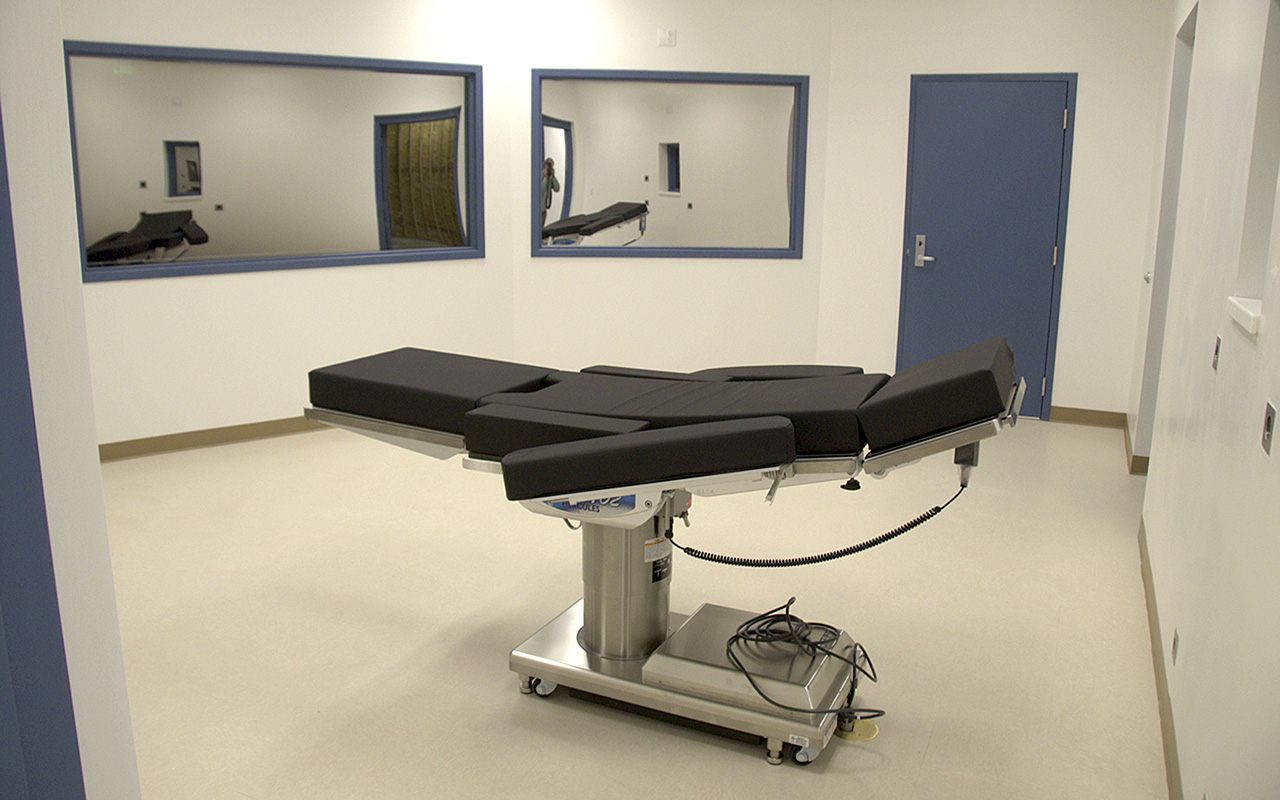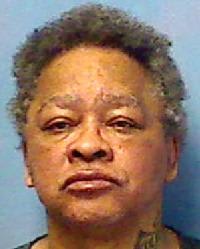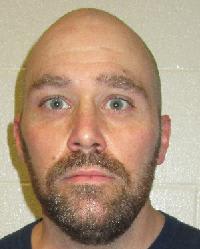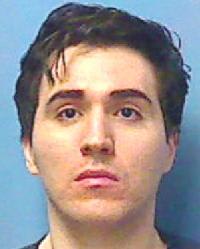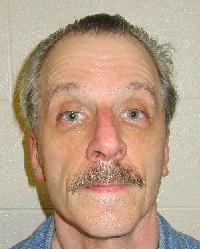Nevada’s death row houses 64 convicted killers, all men, most of whom have been awaiting execution for more than two decades.
At least nine of those men have been granted a new trial or have had a court rule that their sentences should be re-evaluated. But for unknown reasons, the Nevada Department of Corrections continues to list them as residents of death row, a specific wing of Ely State Prison.
As recently as mid-September, Samuel Howard, one of 16 men who had served more than 30 years on death row, was found ineligible for capital punishment by the Nevada Supreme Court after his previous violent felony conviction in New York was vacated.
“Death row is aging,” said Robert Dunham, executive director of the Death Penalty Information Center in Washington, D.C. “It’s aging for many reasons, but one of them is because new evidence continues to show up in these cases.”
On Sept. 21, a Clark County district judge overturned another death penalty case, ruling that lawyers for Ralph Jeremias, sentenced to die in 2014, failed to call a witness who could have affected the outcome of his trial. At 36, Jeremias is among the youngest men on death row in Nevada.
“Sometimes it’s new evidence of innocence. Sometimes it’s new evidence of prosecutorial misconduct. Sometimes it’s evidence that prior convictions are invalid,” Dunham said. “And all of this adds up to a question about the reliability of our judicial process, and what risk of executing somebody who is innocent or wrongfully convicted or wrongfully sentenced do we think is acceptable.”
Nevada has not executed anyone since 2006, but this year, Clark County District Attorney Steve Wolfson said it was time for Zane Floyd’s sentence to be carried out.
Floyd killed four employees inside a Las Vegas grocery store more than two decades ago. Pointing to that crime, Wolfson said capital punishment should be reserved for the “worst of the worst” killers.
The massacre was captured on video, with Floyd arrested in the parking lot. Yet his post-conviction appeals remain tied up in state and federal court.
Wolfson’s office has continued to push for a warrant of execution, while Floyd’s attorneys contest his punishment, as well as the process in which prison officials concocted a lethal injection cocktail.
As lawmakers contemplated abolishing the death penalty in May, Gov. Steve Sisolak said, “I believe there are severe situations that warrant it.”
Killers targeted wide range of victims
Half of those sentenced to die in Nevada were convicted of killing multiple people. Others were found guilty of crimes, like sexual assault, in addition to murder. Some of them killed children, and others ended the lives of elderly victims. Some shot police officers, while others stabbed those they knew. More than 70 percent of the condemned have been found guilty of a Clark County killing. Half are people of color.
The most recent death sentence handed down in Nevada was in 2018 after a jury convicted then-63-year-old Keith Barlow of fatally shooting his ex-girlfriend, Danielle Woods, and her new boyfriend, Donnie Cobb, five years earlier.
The average age of death row inmates is roughly 54.
Two men — Joseph Smith and John Watson — are 81. The state’s youngest condemned prisoner, Javier Righetti, is 29.
Smith was sentenced to die in 1996 for beating and strangling his stepdaughters, Wendy Cox, 20, and Kristy Cox, 12. Watson was convicted of killing his wife, Evie, in a Las Vegas hotel room and cooking her body parts in 2006. He told jurors at his trial in 2010 that he wanted the death penalty.
In early 2019, a judge overturned his conviction and sentence, finding that his trial lawyer conceded a second-degree murder charge in an effort to avoid capital punishment, while Watson maintained his innocence.
Smith’s attorneys have said that he is being treated for kidney failure with dialysis at a prison medical facility in Carson City. Watson is now legally blind and uses a wheelchair at Ely State Prison, according to his lawyer.
The state’s longest-serving death row prisoner is 62-year-old Edward Wilson, who pleaded guilty to killing undercover Reno police officer James Hoff during a drug sting in 1979. He was sentenced the same year by a three-judge panel, a process Nevada lawmakers banned 24 years later.
Under current Nevada law, prospective jurors in a capital murder trial must be screened for qualification, meaning no one who is categorically opposed to the death penalty can serve on such a panel.
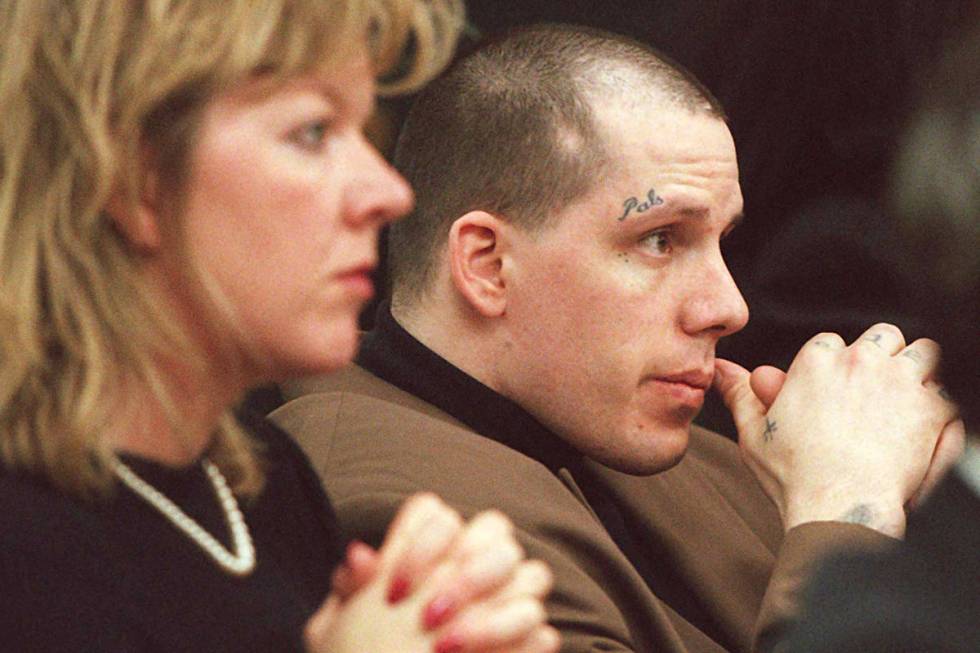
‘This isn’t living, man’
The condemned men, convicted in five of Nevada’s 17 counties, sit for most of the day alone in cells with iron doors. When they are let out for a shower or exercise, they are shackled and escorted back and forth by prison guards.
For years, Scott Dozier, twice convicted of murder, pushed for the state to carry out his execution, before he ultimately took his own life inside his cell.
“Life in prison isn’t a life,” he told the Las Vegas Review-Journal three years ago. “This isn’t living, man. It’s just surviving.”
In 2019, another prisoner, Kevin Lisle, convicted in the 1994 killings of 19-year-old Kip Logan and 19-year-old Justin Lusch, wrote that he intended to stop fighting his case, though he has since pulled back on the death wish.
Lisle had been classified as an inmate deemed to have “high risk potential,” and he spent upward of 20 years isolated from other prisoners.
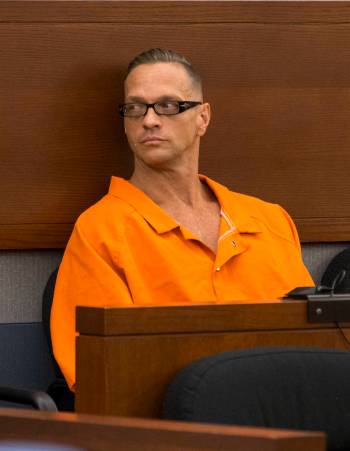
At one point, he spent at least three months straight in disciplinary segregation, where he was stripped of everything but books or his legal work, in a cell with no windows and no clock. Only meals fed through a slot suggested the passage of time.
“You get disorientated,” Lisle recently told the Review-Journal during a phone interview. “You lose track of the days.”
He said he keeps pictures of family, some of whom have since died, on the walls of his cell to remind him of freedom.
“I think we’re all pretty much delusional in these cells, and that’s how we keep our sanity,” he said. “You pick out little moments in your life that had a profound effect. If you would have done this instead of this, how would your life have been.”
Timmy Weber, who was sentenced to die in 2003 for fatally beating and torturing Kim Gautier and her 15-year-old son in Las Vegas, once wrote of being trapped in a solitary cell, where the seconds ticked slowly to minutes of the nearly 23 hours each day he was locked down. His words echoed Lisle’s.
“Your brain has way too much time to think,” Weber wrote. “So you think yourself into all of your life’s decisions which lead you here. And obviously since you’re on death row, you’ve made bad choices. You run a million what-if scenarios through your head that would have resulted in you not being in prison at all.”
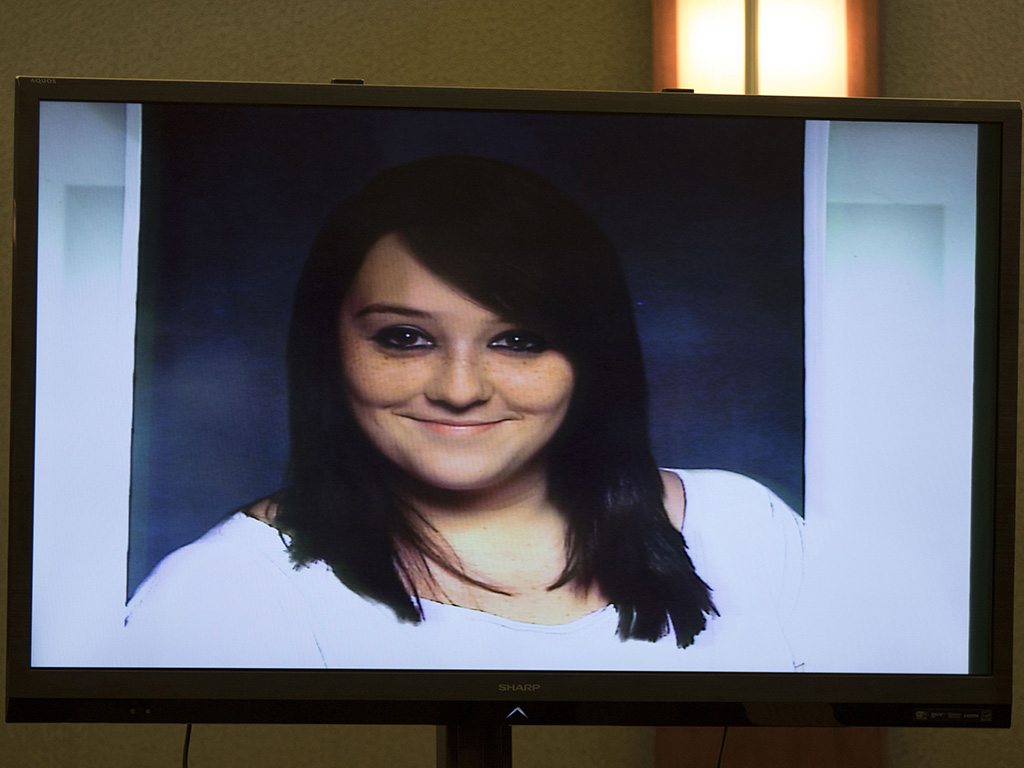 A photo taken two days before Alyssa Otremba's death is displayed during the penalty phase of the trial of Javier Righetti. (Heidi Fang /Las Vegas Review-Journal) @HeidiFang.
A photo taken two days before Alyssa Otremba's death is displayed during the penalty phase of the trial of Javier Righetti. (Heidi Fang /Las Vegas Review-Journal) @HeidiFang. 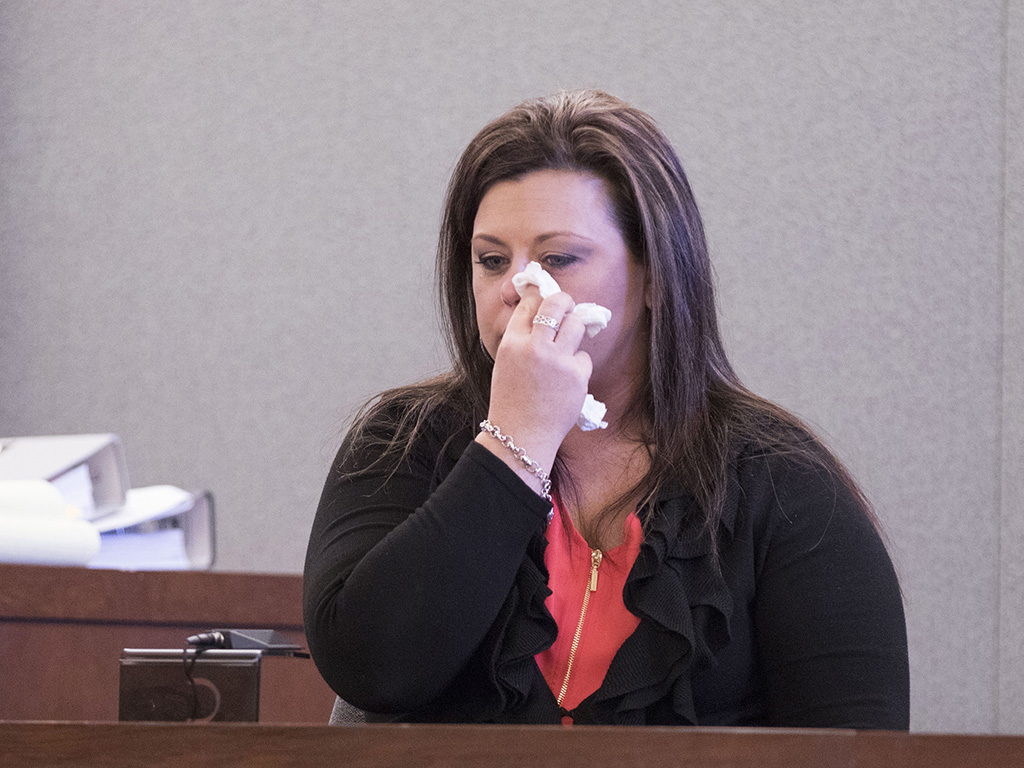 Alyssa Otremba's mother, Jennifer, cries as she remembers her 15-year-old daughter. (Heidi Fang /Las Vegas Review-Journal) @HeidiFang.
Alyssa Otremba's mother, Jennifer, cries as she remembers her 15-year-old daughter. (Heidi Fang /Las Vegas Review-Journal) @HeidiFang. ‘Where is the justice for the families?’
More than 50 percent of death sentences handed down in Nevada have been reversed at the state or federal court level since capital punishment was reinstated in 1977, according to data collected by the Nevada Coalition Against the Death Penalty.
All but one of the 12 executed in Nevada since then have been deemed “volunteers,” or those who gave up their appeals. In 1996, triple murderer Richard Moran was executed against his will. His sentence had been imposed by a three-judge panel, which since has been ruled unconstitutional.
Prosecutors must explain the delays to relatives of victims as they seek capital punishment.
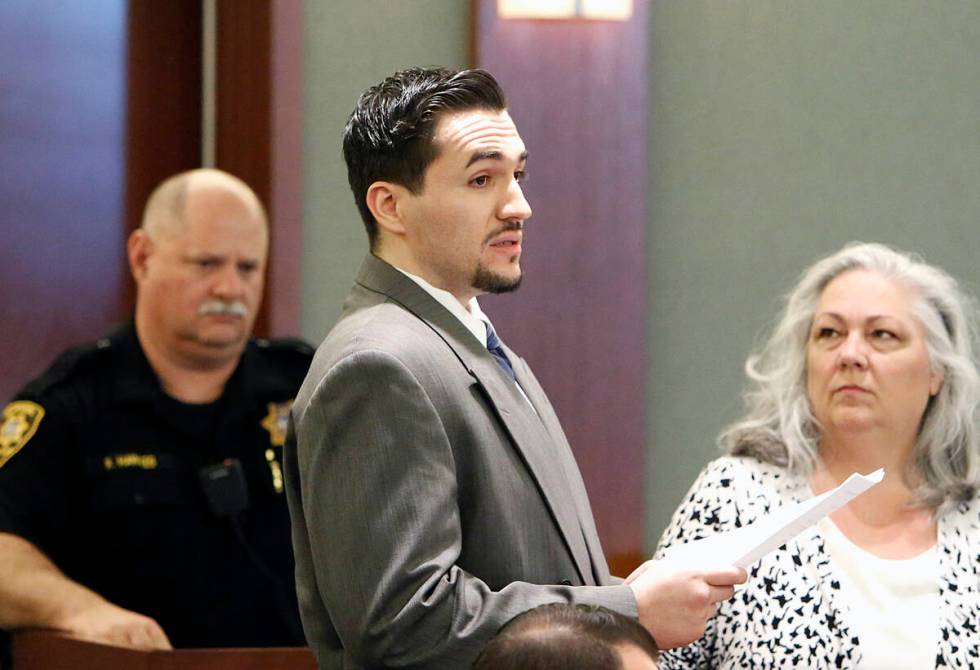
“The system is broken when you see a case like Zane Floyd or Scott Dozier,” said Chief Deputy District Attorney Marc DiGiacomo, who has taken upward of 15 death penalty cases to trial. “I’m not sure there is a simple solution. You obviously don’t want a system that’s not going to look at (appeals), but once we allow the delays to occur, it’s almost like even the system itself sees the penalty as only symbolic. Because everybody knows that you’re unlikely to ever get executed.”
Righetti was sent to death row at age 24 for raping and fatally stabbing 15-year-old Alyssa Otremba inside a tunnel about 100 yards from her home during her first week of class at Arbor View High School. Eight days after that sentence was imposed, Jennifer Otremba, the teen’s mother, traveled to Carson City asking state lawmakers to keep capital punishment legal.
She understands that Righetti might never set foot inside an execution chamber.
“These people still have lives, and I do find value in life,” she said in a recent phone interview. “But I do also believe that there’s consequences for your actions. It’s extremely frustrating and offensive that people want to come in and just abolish it altogether. Where is the justice for the families? We’re talking about the most heinous acts.”
She was back in front of the Legislature this year and expects to return the next time lawmakers meet.
“Every day that I have to wake up, and I don’t have my child, I’m not too upset that he has to wake up, not knowing if today or tomorrow or next week it’s the end for him,” she said. “I’m OK with that.”
Contact David Ferrara at dferrara@reviewjournal.com or 702-380-1039. Follow @randompoker on Twitter.



